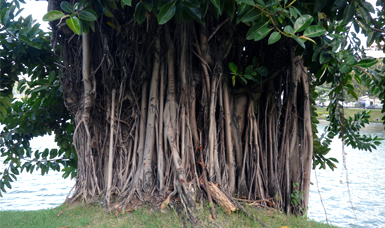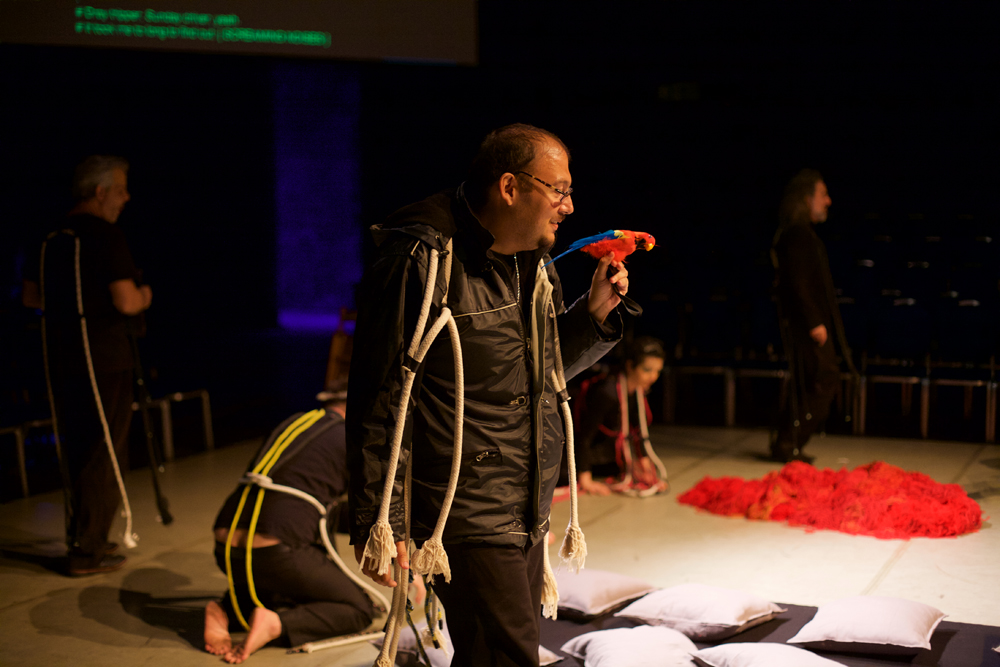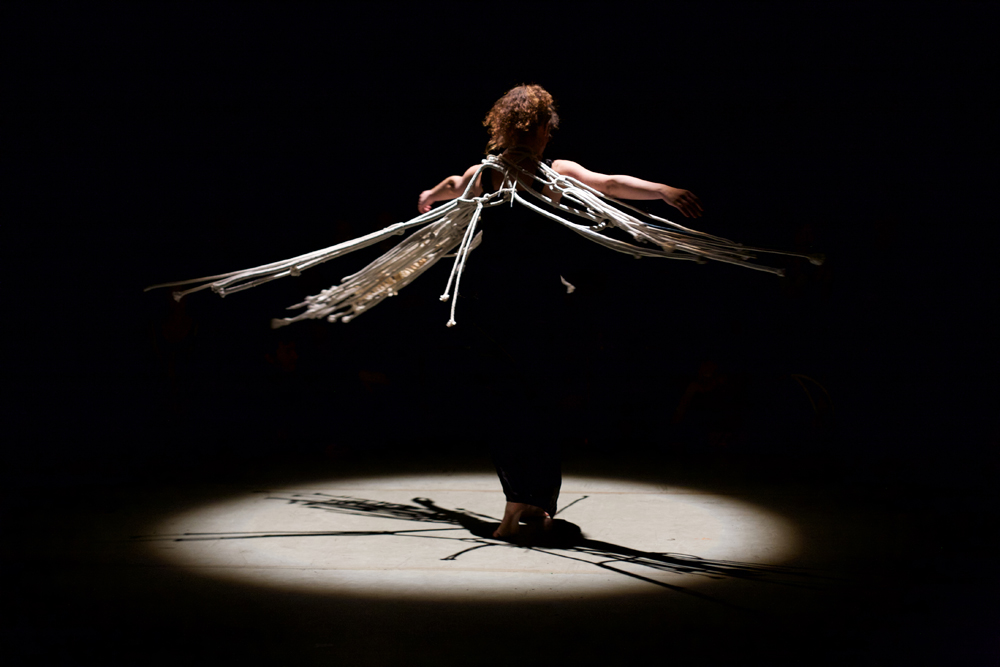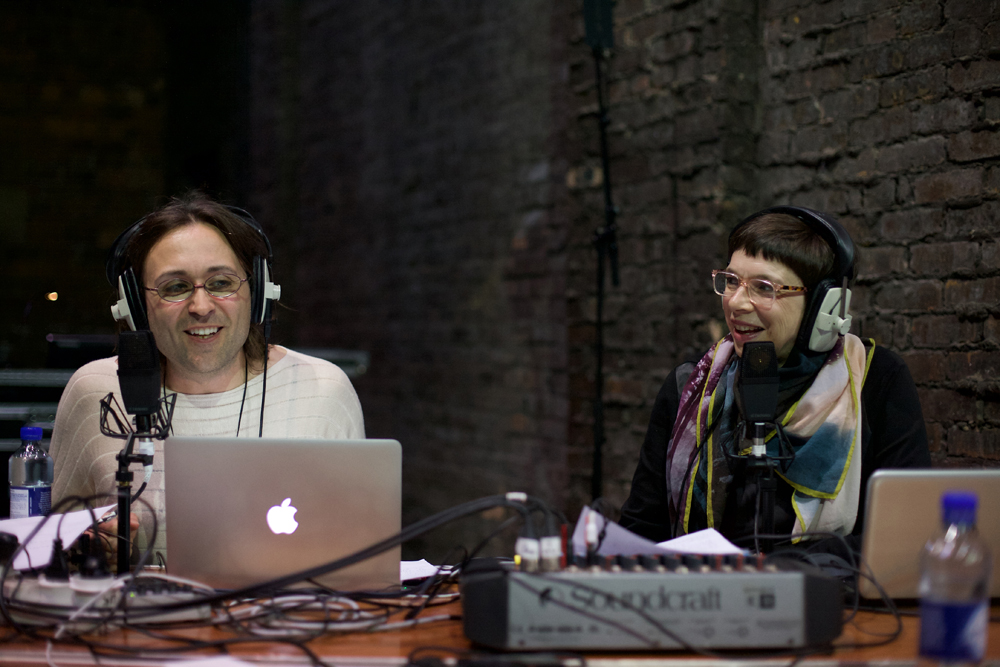
We Can’t Live Without Our Lives
Could the ways we attend to each other’s joys and pains help us to generate different futures together? Could we give humanness a different future by re-imagining what bodies and minds can be?
What we wrote about it at the time: We Can’t Live Without Our Lives is a 5-day exploration of care and empathy, involving schizoscenic theatre, exhaustion, tarot, philosophy and political therapy, necessary intimacies, intuition, queer feminist crip correspondence, minor modes of living, unconsciousness raising, the sharing of vulnerability, no-bodies, and unreasonable politics.
ReadThis Episode is about practicing multiformity and resisting the label of ‘deformity’. It is about refusing what has been refused of so many – the so-called right to be a human, a citizen, a subject. It is about how maybe we want to be more than that. It’s an invitation to think about how we might we give humanness a different future. It’s about the ways we dance or limp together; talk and stutter together; look, listen and feel together and how they can embody our desires and struggles. It’s about imagining care as a form of resistance, whilst resisting the state’s damaging notions of ‘care’ – a radical socialisation of care that might generate points of solidarity where many of different struggles overlap. It’s about how before we do anything – struggle or imagine or dance – first off we really just need to exist: and so it’s about how ‘we cannot live without our lives.’
We Can’t Live Without Our Lives
1.
Do the powers and institutions that dominate contemporary life attach any importance to our wellbeing, are they interested in anything other than our fitness to work? Are our exhausted bodies and minds anything other than a means to an end? What’s normal about being turned inwards on ourselves, individualised? Is this care? Can we care differently? Can we think of ourselves in excess of any single individual?
To cast a stone into a commanding centre of capitalism is one thing. But to transform a kidney-stone into activity is the same. Protect yourself not only against kidney-stones but also against political murder! Turn illness into a weapon! Socialist Patients Collective of the University of Heidelberg (SPK) 1
2.
Our bodies and lived realities are marked by oppressions, privileges and power structures that limit what we can be, do or say. Dominant Western ideas of who can call themselves human have historically been used to enslave, colonise and kill. These ideas are still used to justify treating people as disposable no-bodies. But what if our idea of being human goes beyond those constraints? What if we don’t agree with what a ‘normal body’ looks like, how a ‘well-adjusted’ person behaves? What if ‘normal’ looks pathological to us – a kind of normopathy? What if we practice multiformity instead and resist ‘deformity’? What if we refuse what has been refused of so many – the so-called right to be a human, a citizen, a subject? Maybe we want to be more than that. Maybe we want to give humanness a different future.
Do we want to be some-body under the state, or no-body against it? Denise Ferreira da Silva
3.
We think that the ways we dance or limp together; talk and stutter together; look, listen and feel together, can embody our desires and struggles – inhabiting them to generate different possible futures together. Our most recent episodes have worked with groups rehearsing these new worlds, going beyond the ways power can divide us from one another in relation to supposed norms of race, gender or sexuality. The episodes have asked us to also think along with people and communities who reject normalising ideas of what bodies and minds can be, imagining care as a form of resistance whilst resisting the state’s damaging notions of ‘care’ – a radical socialisation of care that might generate points of solidarity where many of those different struggles overlap.
Episode 7 is not an answer to these concerns. It’s more like an invitation to complicate them together – to open up different possibilities alongside one another.
Sickness, disability and unproductivity are not anomalies to be weeded out; they are moments that occur in every life, offering a common ground on which we might come together. Crimethinc Ex-Workers’ Collective 2
4.
Working with these ideas and with people who are involved in daily practices of radical care has challenged us to think about how we incorporate care into the content and the structures of our episodes. We’ve had to consider how various languages can exist together – Portuguese, British Sign Language, English, the languages of the body, poethical languages; political, informal, philosophical languages. We’ve thought about the importance of intimacy, and what can be shared in small encounters. We’ve had to ask ourselves whether it is preferable to be felt rather than understood. What might it mean to feel through others – to get a feeling for others feeling through you, and the potential of mobilising the way in which these feelings feel. We’ve had to think differently about daily rhythms, logistics and social reproduction. Before we do anything – struggle or imagine or dance – first off we really just need to exist: ‘we cannot live without our lives.’ 3 We’ve tried to organise Episode 7 in a way in which as many of us as possible could explore these things together.
Caring for myself is not self-indulgence, it is self-preservation, and that is an act of political warfare. Audre Lorde 4
The Episode was reviewed in The Skinny by Emma Ainley-Walker and in The List by Gareth K Vile.
- The SPK was a “free space for political therapy” involving over 500 people in practices of collective care and resistance.
- From The Self As Other zine by anarchist CrimethInc. Ex-Worker’s Collective
- We first heard this phrase from our friend Reina Gossett – trans activist & artist who participated in Episode 6. It’s the title of a book by the feminist, political activist and essayist Barbara Deming. Reina used it in a talk to think about how we cannot reproduce in the abundantly queer nonsexual and sexual ways we have if we don’t have our lives, our welfare, the basic means of our survival.
- Audre Lorde was a black radical lesbian activist poet who struggled towards forms of collectivised care and community. She wrote this while experiencing breast cancer, resisting a rhetoric of survival. When she talks about ‘self’ we think she means being in excess of any single individual.
Programme Events

Work Care Class 1 – Care & Work
Howard Slater
First in a series of workshops for workers and non-workers who care. Does work that asks us to be attentive to the needs of others force us to sell our capacity for kindness?

Poethical Readings/Intuiting the Political
Denise Ferreira da Silva Valentina Desideri
Four intimate 45 minute sessions, readings of your political questions – using Tarot, Palmistry, Reiki, Astrology, and Philosophy, and the invented methods of Fake and Political Therapy.

Ode to 1 & more than 1
Constantina Zavitsanos Park McArthur
The first of two workshops that highlight correspondence as a way of working. Somewhere between song, speech, and logistical arrangement, these workshops invite participants to consider care as infrastructure.

TLRS Morning Show
Laurence Rassel Terre Thaemlitz
(Cyber)feminist, non-essentialist transgender and queer daily radio shows using the formula of morning radio as an arch way of thinking about the scripted behaviour and controlled empathy of systematic care.

Assemblages
Dir: Maurizio Lazzarato & Angela Melitopoulos
A filmic constellation exploring Felix Guattari’s anti-patriarchal, anti-colonialist, anti-psychiatric, animist ideas of care and the self. And an Introduction to the Episode.

Every Little Thing
Dir. Nicolas Philibert
Documentary of La Borde clinic in France and its radical politics of experimentation, in which residents and staff reciprocate in a kind of entanglement, an opening up amongst themselves.

Ueinzz Crossings
Ueinzz
An open collaborative workshop space in which games, warm-up sessions, exercises and scenes are potentially the same thing, through which to project your own concerns onto the stage.

Ueinzz Context
Ueinzz
An open conversation around the history and practices of the Ueinzz Theatre Company – a radical Brazilian schizoscenic theatre company of carers, so-called psychotic patients and philosophers.

It’s Sorta Like a Big Hug
Constantina Zavitsanos Park McArthur
How can we imagine bodies not as an end in themselves, but as a medium through which we can become one another’s means?

Work Care Class 2 – Care & Therapy
Howard Slater
The second in a series of workshops for workers and non-workers who care. What does the sharing of vulnerability entail? Can such a sharing inform progressive social relations?

No Ready Made Men – Open Rehearsal
Ueinzz
Inhabiting a different kind of energy, Ueinzz’s open rehearsals reveal a glimpse into their ongoing daily theatrical modes of caring – multiplying the ways in which their plays are meant to be felt, rather than understood.

Work Care Class 3 – Care & Revolution
Howard Slater
Final workshop exploring work, care and class. Does the ‘care industry’ summon forth its own class? Can this ‘affective class’, in their ability to care for others, militate against the carelessness of self-interest?

Ode to 1 & under
Constantina Zavitsanos Park McArthur
How can we imagine bodies not as an end in themselves, but as a medium through which we can become one another’s means?

No Ready Made Men – Performance
Ueinzz
A performance of Ueinzz’s new play. Each Ueinzz performance is a process of reinvention, between exhaustion and a fleeting vision: singular, collective, anonymous, plural, suspensive, intensive, unworking life.

Standing in the Flesh
Hortense J. Spillers
In rethinking the body, the law, the state, gender, race, violence, care and empathy, how we might give humanness a different future?

Cartography of Exhaustion
Peter Pál Pelbart
If life is assaulted by power, where do we find spaces for living? A conversation with Peter Pál Pelbart.

TLRS
Laurence Rassel Terre Thaemlitz
The weeks previous TLRS daily radio shows, after-hours conversations, radio booths and special guests reassembled as a live electroacoustic performance.